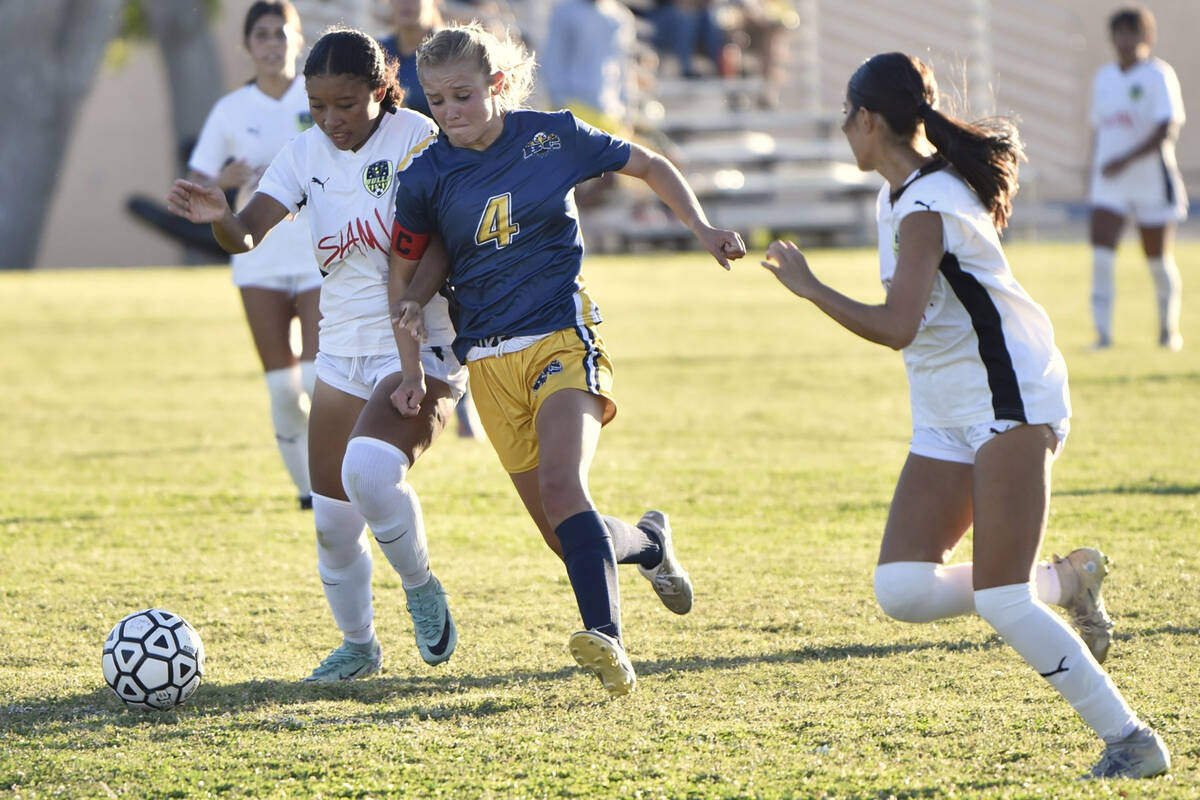Nevada
Oakland A’s face more challenges with Las Vegas move

Oakland A’s continue to face funding issues for Vegas site
The Oakland A’s are running into some funding problems as they try to make a move to Las Vegas, according to the Nevada Independent.
OAKLAND, Calif. – The Oakland A’s are running into additional funding problems as they try to make a move to Las Vegas, according to the Nevada Independent.
Lawmakers have not yet introduced legislation that would green-light public money to build a new stadium along the Strip.
Nevada’s lawmakers are only willing to contribute $195 million for the ballpark, not the $395 million the A’s are seeking. Plus, the clock is ticking to approve a funding package, with just 20 days left in the Nevada legislative session.
SUGGESTED:
Reporter Tabitha Mueller with the Nevada Independent provided insight into the troubles facing the Athletics.
“I don’t think we can say right now. I think it’s a matter of when that legislation comes through…there are folks that are interested in the Legislature, saying that there may be willing to give anywhere from $150 to $195 million in transferable tax credit,” Mueller said.
PREVIOUS COVERAGE: Oakland A’s have not presented ‘concrete plan’ to Nevada lawmakers; time running out
Initially, the A’s were focused on one site there in Las Vegas, before they shifted over to wanting to build at the site near the Tropicana Hotel. Mueller said according to sources familiar with the situation the switch could be a possible issue.
“The A’s flip-flopping on a stadium site and not having a concrete solution or not having a concrete proposal is part of the hold up here,” Mueller said.
The Oakland A’s first asked for $500 million in public funding before dialing back to $395 million.
READ ALSO: Pitcher accidentally kills bird with pregame throw at Oakland Coliseum
“I think part of it as well comes down to them being able to get the Tropicana site for free as a gift from the owners of it,” said Mueller.
It’s possible that both houses of the Legislature could approve a funding package before the June 5 deadline, Mueller said.
Still, there is still a chance for a special legislative session if a decision is not made before the deadline.
“I don’t think anyone is very excited about [having a special legislative session] because [Nevada legislative session] meet for 120 days every two years…to go into a special session in a year when we already had a regular session is going to cost the taxpayers more money,” Mueller said.

Nevada
Nevada court rules that Las Vegas Hells Angels can face gang prosecution

Las Vegas Hells Angels motorcycle club members accused of targeting a rival club in a Henderson highway shooting can be prosecuted as gang members under state law, the Nevada Supreme Court ruled Thursday.
The 2022 Memorial Day shooting on Interstate 11 — which Clark County prosecutors alleged targeted Vagos Motorcycle Club members — injured seven people.
Addressing that case, the higher court ruled that there was enough probable cause to classify the Hells Angels as a criminal gang.
Indicted Hells Angels members included local chapter President Richard Devries.
District Court Judge Tierra Jones in 2023 dismissed some of the charges the suspects were facing, including racketeering, gang enhancements and 20 of 25 shooting-related counts.
Jones had sided with defense attorneys who had argued that the indictment failed to properly specify which defendants engaged in alleged racketeering activities.
Police told a grand jury that investigators recovered 25 spent bullets on the highway.
Jones noted that prosecutors only presented evidence from a witness who testified that one of the suspects fired five rounds.
Defense attorneys countered that the state failed to consider exculpatory evidence that some of the Vagos members had guns and that one of the indicted suspects, Rayann Mollasgo, had also been shot.
‘Criminal gang’
“We conclude that this was an error because the State presented at least slight or marginal evidence to support a reasonable inference that Hells Angels members commonly engage in felony-level violence directed at rival motorcycle clubs, such that that group constitutes a criminal gang,” Supreme Court justices wrote in their ruling.
Added the higher court: “Because the District Court substantially erred in dismissing the gang enhancement, we reverse and remand.”
The other Hells Angels members indicted were Stephen Alo, Russell Smith, Aaron Chun, Cameron Treich and Taylor Rodriguez.
After Jones’ ruling, they still were facing 17 charges, including attempted murder and conspiracy to commit murder. Roneric Padilla, who also was indicted, was charged with accessory to commit a felony.
The Vagos group was returning to Las Vegas from Hoover Dam in a ride commemorating the holiday when Hells Angels motorcyclists rode behind the victims, according to prosecutors, who allege the Vagos were ambushed.
The suspects broke up the victims’ group and then shot at individual riders, prosecutors said.
Prosecutors alleged that the shooting might have been in retaliation for a California shooting that killed a Hells Angels motorcyclist, an accusation challenged by Vagos members during a grand jury hearing.
Nsc Hells Angels Decision by Las Vegas Review-Journal on Scribd
Contact Ricardo Torres-Cortez at rtorres@reviewjournal.com.
Nevada
Nelson paces All-Southern Nevada soccer selections

Honored among the state’s best, Boulder City High School girls soccer stars Makayla Nelson and Abbey Byington were named to the All-Southern Nevada team.
An honor usually presented to 5A and 4A players, Nelson and Byington were among seven 3A players to make the 54-player team.
“I am very proud of Mack and Abbey’s accomplishments this year,” head coach Kristin Shelton said. “I’m not surprised they were honored as top players in the state, as they absolutely deserve it. Their talent is obvious and I’m so happy it was recognized by others.”
A dynamic scorer with a state-leading 58 goals, Nelson was named a second-team All-Southern Nevada selection after being named 3A Mountain league’s most valuable player.
Helping the Lady Eagles to a 15-4-1 record, Nelson was named to the 3A All-State first team, after generating 15 assists as well this past season.
“I can’t say it enough that Mack was a force to be reckoned with this year,” Shelton said. “Not only was she our leading scorer, she was just an all-around great student-athlete and leader. Every other coach in our league knew her by name and agreed that she was most deserving of Player of the Year.”
Named an honorable mention selection, Byington was named to the 3A Southern region second team after generating 30 goals and 16 assists this past season.
Honored by the 3A, junior Sancha Jenas-Keogh was a first-team 3A All-State selection after being named defensive player of the year for the Southern region.
Emerging as a breakout presence on both sides of the ball, Jenas-Keogh generated eight goals and eight assists, along with 20 steals.
“Sancha blew everyone away defensively this year,” Shelton said. “Her speed is unmatched, which is why she was able to shut down so many top players in our league. I am extremely excited to have her for one more season and really look forward to continue watching her soccer success.”
Named to the Mountain League second team for the Eagles was senior Abby Francis (eight goals, 12 assists) and juniors Josie Cimino (six goals, seven assists) and Leonesse Williams (six assists, 48 steals).
Nevada
Top 5 high school mascots in Nevada: Vote for the best

Some of the best high school mascots in Nevada are in some seriously remote locations, but one urban contender for best in the state is Cheyenne High School’s Desert Shields in North Las Vegas.
Over the next couple of months, SBLive/SI will be featuring the best high school mascots in every state, giving readers a chance to vote for No. 1 in all 50.
The winners and highest vote-getters will make up the field for our NCAA Tournament-style March Mascot Madness bracket in 2025. The Coalinga Horned Toads (California) are the defending national champions.
Here are High School on SI’s top 5 high school mascots in Nevada (vote in the poll below to pick your favorite):
The poll will close at 11:59 p.m. ET Thursday, Jan. 9.
The North Las Vegas school was built in 1991, a year after the United States’ Operation Desert Shield began in Iraq. For Native Americans, a desert shield is a protective hide often decorated with bright designs and feathers.
Not quite a tornado, a dust devil is a strong, well-formed, relatively short-lived whirlwind. And the Dust Devils’ mascot has lots more personality than a lot of tornado logos out there — it looks ready to fight with its dukes up while sporting a serpent-like tail.
Tonopah is in mining country in off-the-beaten-path Nevada, and mucking is a little-known mining process. Muck is a mix of silver, rock and dirt, and muckers load it into ore cars for it to be rolled to the surface and processed. Fighting Muckers, on the other hand, play high school sports.
Mineral County residents have been telling horror stories about Walker Lake’s Cecil the Serpent since the 1800s, warning of imminent death to anyone who dared to swim in Cecil’s lake. If that’s not a perfect scenario for a high school mascot, I don’t know what is.
Anyone with arachnophobia will want to skip ahead to the next one (and stay away from Gabbs, Nevada, in the fall). From September through November, thousands of desert tarantulas get out of their burrows and roam searching for a mate, representing the world’s largest tarantula migration. They’re so ever-present in Gabbs that the high school made the obvious choice of calling themselves the Tarantulas.
—
To get live updates on your phone — as well as follow your favorite teams and top games — you can download the SBLive Sports app: Download iPhone App | Download Android App
— Mike Swanson | swanson@scorebooklive.com | @sblivesports
-
/cdn.vox-cdn.com/uploads/chorus_asset/file/24924653/236780_Google_AntiTrust_Trial_Custom_Art_CVirginia__0003_1.png)
/cdn.vox-cdn.com/uploads/chorus_asset/file/24924653/236780_Google_AntiTrust_Trial_Custom_Art_CVirginia__0003_1.png) Technology6 days ago
Technology6 days agoGoogle’s counteroffer to the government trying to break it up is unbundling Android apps
-

 News1 week ago
News1 week agoNovo Nordisk shares tumble as weight-loss drug trial data disappoints
-

 Politics1 week ago
Politics1 week agoIllegal immigrant sexually abused child in the U.S. after being removed from the country five times
-

 Entertainment1 week ago
Entertainment1 week ago'It's a little holiday gift': Inside the Weeknd's free Santa Monica show for his biggest fans
-

 Lifestyle1 week ago
Lifestyle1 week agoThink you can't dance? Get up and try these tips in our comic. We dare you!
-
/cdn.vox-cdn.com/uploads/chorus_asset/file/25672934/Metaphor_Key_Art_Horizontal.png)
/cdn.vox-cdn.com/uploads/chorus_asset/file/25672934/Metaphor_Key_Art_Horizontal.png) Technology3 days ago
Technology3 days agoThere’s a reason Metaphor: ReFantanzio’s battle music sounds as cool as it does
-

 Technology1 week ago
Technology1 week agoFox News AI Newsletter: OpenAI responds to Elon Musk's lawsuit
-

 News4 days ago
News4 days agoFrance’s new premier selects Eric Lombard as finance minister



















